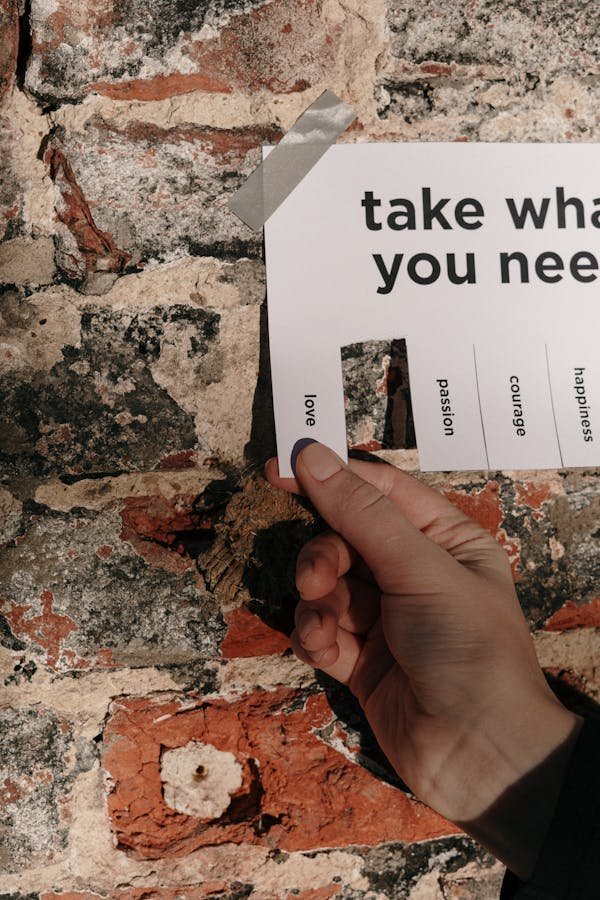|
Getting your Trinity Audio player ready...
|
Summary
Effective parenting starts with parental self-awareness—the ability to recognize one’s own ideas, feelings, and motivations. Rooted in the idea of “reflective functioning” pioneered by Peter Fonagy and colleagues, reflective parenting teaches caregivers to “keep the child’s mind in mind” while also looking at their own internal states.
Celebrated author and child psychologist Chelsea Acton builds on this basis by including empathy, emotional intelligence, and non-punitive discipline to help parents develop self-awareness, resilience, and closer relationships with their children.
Combining ideas from The New York Times and Parents magazine with top psychologists like Daniel J. Siegel (“Parenting from the Inside Out”) and Arietta Slade (Reflective Parenting programs), this blog provides theory, useful advice, and real-life stories to help the average parent on a road of reflective self-discovery and conscious caregiving.
Introduction: Why Does Reflective Parenting Matter?
From digital overstimulation to increased academic pressure, modern families negotiate difficult emotional terrain. Reflective parenting becomes a potent tool in this setting that helps caregivers to:
- Identify and control their own emotional triggers
- View their child’s actions through the prism of underlying mental states;
- Strengthen parent–child attachment by empathy and mutual understanding.
Reflective parenting fundamentally changes daily interactions into chances for both parent and child to develop in self-awareness and emotional intelligence.
Grasping Reflective Parenting
Reflective functioning: what is it?
Reflective functioning (RF) is “the ability to imagine mental states in self and others” and to decipher actions as meaningful expressions of ideas, emotions, and intentions.
Self-focused RF: Recognizing one’s own feelings, motives, and triggers—e.g., stress from job finding its way into personal interactions.
Child-oriented RF: Giving the child mental states—that is, interpreting a toddler’s tantrum as frustration over inadequate communication skills.
Sensitive caregiving, secure attachment, and improved child emotion-regulation all depend on high parental RF.
Beginning in psychoanalytic research
RF was first proposed by Peter Fonagy and associates at the Tavistock Clinic in the 1990s, and studies of parents who consider mental states reveal that they foster:
1. More robust bonds of attachment
2. Improved children’s self-regulation
3. More flexible responses from parents
Later initiatives, such as Slade’s “Minding the Baby,” operationalize RF in psycho-education groups, teaching parents to mentalize their own and their child’s inner worlds.
The Reflective Philosophy of Chelsea Acton
Who is Chelsea Acton?
Renowned writer, child psychologist, and speaker Chelsea Acton emphasizes in parenting empathy, emotional intelligence, and mutual respect.
Having degrees from Stanford and decades of clinical experience, she connects academic research with daily practice so that the common parent may find reflective ideas easily available.
Acton’s Approach’s Essential Ideas
Driven Communication Inspired by Empathy
Active listening helps the child to validate their emotions before providing direction.
Emotion coaching: teach kids language meant for internal states to develop self-control.
Non-punitive Correction
Time-ins rather than time-outs: find connection in misbehavior rather than isolation.
Natural results: let kids discover cause-and-effect inside reasonable bounds.
Parental Self-care and Modeling
Self-awareness: consider how personal worries affect parenting attitudes and reactions.
Self-compassion: treat yourself gently to teach kids resilience.
Acton helps parents turn reactive patterns into conscious, intentional interactions by including reflective functioning into daily activities.
Promoting Parental Self-awareness
The Part Self-Focused Reflective Functioning Plays
Self-focused RF helps parents to see when their own perfectionism, tiredness, or outside pressure sets them off. Journaling: capturing emotional highs and lows to identify triggers; mindfulness practices:
- pausing before responding to a child’s misbehavior
- therapeutic support: individual or group work to deepen self-reflection; as Suchman et al. explain, “self-mentalizing predicts quality of parent–child interaction” even more than simply understanding the child.
Reflecting Models for Young Children
When parents share their mental processes (“I’m feeling frustrated because it’s been a long day”), they teach their children:
- Emotions are normal and shareable.
- Self-reflection is a road to problem-solving.
- Communication builds empathy and trust.
These modeling behaviors fit Daniel Siegel’s “Parenting from the Inside Out,” which emphasizes how family harmony and child well-being are supported by parents’ self-awareness.
Doable Techniques for Reflective Practice
The “Pause and Name” Method
“What’s behind these feelings?” you might ask after pausing to name your feeling—”I’m feeling anxious.”
This creates neural paths for over time conscious reactions.
Reflective Conversations during Dinner
During family dinners, set aside ten minutes to discuss one item that made each member proud and one item they found difficult, so as to promote emotional literacy and group reflection.
Friday “Parent Reflection Circle”
Form small groups—in person or online—where parents: • Share a recent parenting challenge; • Identify emotional triggers; • Brainstorm thoughtful responses
These organizations build on the Reflective Parenting program framework used by ACPMH.
Emotional cards for young children
Show simple emotions on visual cards—happy, sad, angry, terrified. Children should choose a card that best fits their mood; then, as a group, consider what might have caused that feeling, reiterating child-oriented RF.
Real Life Stories
First Story: Turning Tantrums into a Learning Opportunity
Laura’s Travels
Busy single mother Laura battled daily with the afternoon meltdowns of her son Ethan. She had used harsh time-outs in the past, which left both feeling cut off.
Laura started stopping when Ethan erupted after reading Acton’s time-in guide. Kneeling, gently holding him, she would say, “I see you’re really angry because you want more playtime.” Ethan began using words instead of screams over several weeks, and Laura observed her own stress levels drop as she grew closer to her son’s inner world.
- Laura’s self-examination: her impatience stemmed from her weekday tiredness.
- Emotional breakthroughs: Ethan’s outbursts gave way to peaceful conversation.
- Attachment tightened: daily “check-in” hugs replaced reactive discipline.
Second Story: The Road of Self-Compassion for Fathers
James’s Discovery
Corporate attorney James took great satisfaction in high standards. But he reacted angrily, “You can do better!” when his daughter Mia scored a B+ on a science test. Mia turned away, and James experienced terrible guilt. “I’m upset because I equate grades with worth,” he said, learning to pause and internalize in a parenting workshop on reflective functioning.
He told Mia he was sorry the next morning and shared his own school worries. Mia talked about test anxiety, and together they developed a study schedule fit for her interests. James’s self-awareness not only restored their relationship but also set an emotional example of integrity.
James noted the connection between his pride and his response; child-oriented RF; he listened to Mia’s point of view without passing judgment; and lastly, family conversations about emotions became second nature.
Combining Media Insight with Leading Psychologist Expertise
Parenting from the Inside Out by Daniel J. Siegel & Mary Hartzell
Siegel notes that knowing one’s own early events enhances parenting. Reflective self-exploration, he contends, improves parent attunement and co-regulation with their child.
Susan David on “Emotional Agility”
David’s work on emotional flexibility helps parents to face difficult emotions with curiosity rather than avoidance, so it complements reflective parenting.
Frequently Asked Questions
1. What is reflective parenting, and why is it relevant?
Reflective parenting is the practice of, before reacting to behavior, considering both your own and your child’s mental states—thoughts, feelings, and intentions. Parents who “mentalize” a toddler’s outburst see it as frustration over limited communication, not as simply disobedience. Studies reveal that high reflective functioning in children promotes safe attachment and improved emotional control, which results in closer relationships and fewer behavior issues.
2. How different is Chelsea Acton’s approach from conventional parenting?
Beyond reward-and-punishment models, Chelsea Acton combines mentalizing theory with empathy-driven communication. Rather than separating a disruptive child with a “time-out,” she supports a “time-in,” using the opportunity to connect and explore emotions.
Acton stresses parental self-care and self-compassion as prerequisites for conscious responses; conventional approaches sometimes ignore the inner state of the caregiver.
3. How might parents practically increase their self-awareness?
To find stress triggers—work fatigue, perfectionism, or personal anxiety—start by daily noting daily emotional highs and lows. Use the “Pause and Name” method: pause before responding, identify your feeling (“I’m feeling stressed”), then select a deliberate response.
Even just five deep breaths, mindfulness activities help parents see internal states free from judgment, so strengthening self-focused reflective ability over time.
4. How might parents make best use of time-ins rather than time-outs?
A time-in invites the child to stay close and name emotions together, so turning power conflicts into co-regulation possibilities. Parents start by validating the child’s emotions (“I see you’re upset because…”).
Then they guide toward solutions, fostering emotional literacy and trust. Children grow to self-soothing by internalizing these reflective conversations, so preventing future outbursts.
5. When should reflective parenting methods be first used?
Reflective techniques can begin in infancy: By telling a baby’s actions (“I wonder if you’re tired?”), They come to see that emotions can be communicated and understood.
Simple emotion-cards help toddlers identify basic emotions—happy, sad, angry—which enhances vocabulary and self-awareness. Children can participate in “Pause and Name” with parents by school age, so fostering conscious reflection together.
Final Thoughts
Learning to be a reflective parent honors your child’s developing self as well as your inner world. Including Chelsea Acton’s empathy-driven approach, anchored in reflective functioning, into daily activities will help you transform difficult events into chances for connection, emotional learning, and personal development. Journaling emotional triggers, using “Pause and Name,” and selecting time-ins over punitive time-outs create neural pathways for conscious response.
Your child picks up from you self-awareness and self-compassion that it is safe to explore, express, and control emotions.
The time to start is right now: promise one reflective practice for today. Join us for our forthcoming Virtual Parent Reflection Circle, download our free “Reflective Parenting Starter Kit,” and subscribe for weekly insights from Chelsea Acton and top psychologists.
Guide your first steps here. Accept the ability of self-awareness to help you turn daily challenges of your family into greater connection, resilience, and lifetime well-being. Start your revolution in reflective parenting right now!













